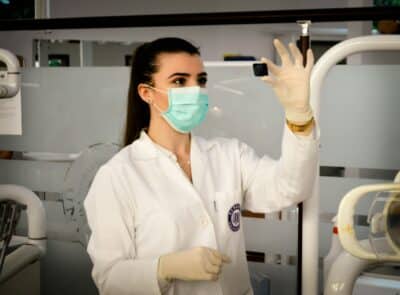Surgery
Not all patients will be eligible for surgery. Typically surgery is performed when there are no signs that the cancer has spread beyond the pancreas. In certain cases, treatments such as chemotherapy or radiotherapy may be offered with the aim of shrinking the cancer and making surgery possible. The location of the cancer is in your pancreas will determine the type of surgery you need.
Whipple
This surgery is the one most commonly performed for pancreatic cancer. It removes cancer from the head of the pancreas. During this operation the head of the pancreas, part of the duodenum, bile duct, stomach and all of the gallbladder are removed.
Distal Pancreatectomy and Splenectomy
This surgery removes cancer from the body and tail of the pancreas. Usually the spleen is removed at the same time because it sits beside this part of the pancreas and the artery that connects to the spleen runs along the back of the body and tail of the pancreas.
Total Pancreatectomy
This is the operation that removes all of the pancreas – head, body and tail. This type of surgery is only carried out under exceptional circumstances as it can have a big impact on your overall health and lifestyle.
Currently, surgical procedures are carried out in two locations.
Cork: Patients from counties in South Munster
St Vincent’s University Hospital, Dublin: Patients from the rest of the country.
National Surgical Centre for Pancreatic Cancer (NSCPC) – St. Vincent’s University Hospital
Chemotherapy
Chemotherapy is a drug treatment used to kill cancer cells. It is one of the main treatments for pancreatic cancer.
It can be used:
- after surgery, to reduce the risk of the cancer coming back.
- before surgery, to try to shrink the cancer so there is a better chance of removing it. Chemotherapy before surgery may also remove cancer cells that cannot be seen.
- to slow down the growth of cancer that can’t be removed by surgery (locally advanced pancreatic cancer or advanced pancreatic cancer).
The frequency of treatment and side-effects you may experience will depend on the type of chemotherapy you are prescribed. This will be determined by your doctor.
See below for information on the two most commonly prescribed chemotherapies for pancreatic cancer.
FOLFIRINOX (or FOLFOXIRI) | Macmillan Cancer Support
Gemcitabine and nab-paclitaxel (Abraxane®) | Macmillan Cancer Support
Radiotherapy
Radiotherapy is a treatment that uses high energy rays to kill cancer cells. It may be used on its own or together with chemotherapy. Pancreatic cancer that has spread to other parts of the body can cause pain. Sometimes radiotherapy is used to help relieve the pain. This is called palliative radiotherapy.
Palliative Care
At some point in your treatment journey you may be introduced to Palliative care. Palliative care aims to help manage symptoms and to improve or maintain your quality of life when diagnosed with a life-limiting illness. This may take place in hospital, in hospice or in your home. A palliative care team can include specially trained doctors, nurses, occupational therapists, social workers, physiotherapists, complementary therapists, counsellors and chaplains. Palliative care can also offer supports to the significant people in your life by facilitating open and honest communication to ensure that treatment options and care decisions align with your preferences and values.
Complementary Treatment
These are treatments that you may have alongside your medical treatment and can include activities such as massage, reflexology, acupuncture and aromatherapy. These are not aimed at treating or curing cancer but may help in managing side effects of treatment and coping with illness. Prior to starting any complementary treatments it is important to first discuss them with your doctor. This includes taking any over the counter medications or herbal products.

